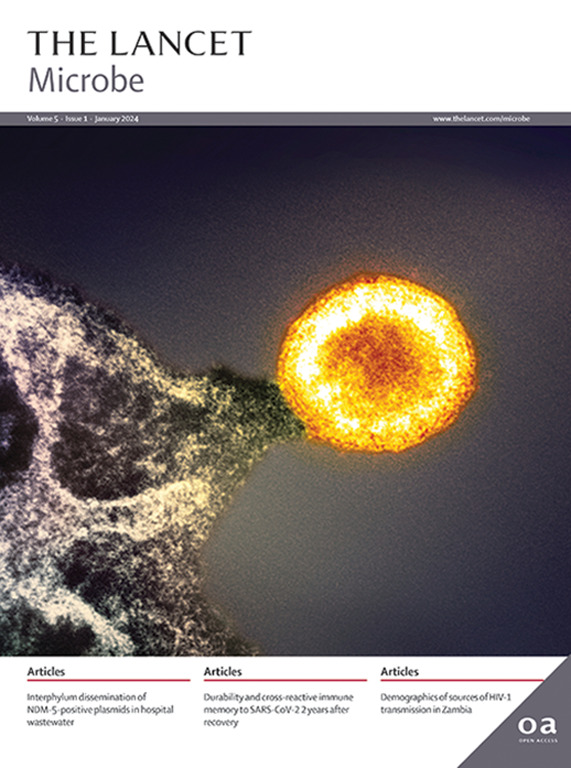Hepatitis B virus resistance to nucleos(t)ide analogue therapy: WHO consultation on questions, challenges, and a roadmap for the field
IF 20.4
1区 生物学
Q1 INFECTIOUS DISEASES
引用次数: 0
Abstract
In this Review, we summarise outputs from a multidisciplinary consultation convened by WHO between July 11 and 13, 2023, to discuss hepatitis B virus (HBV) drug resistance (HBVDR). Treatment of chronic HBV infection with highly effective nucleos(t)ide analogue agents, tenofovir and entecavir, is a crucial intervention that supports the global goal of elimination of HBV infection as a public health threat. The risk of HBVDR as a threat to treatment outcomes is currently considered low from a public health perspective; however, drug resistance can influence individual outcomes, particularly among those who are treatment-experienced. We highlight the need to develop appropriate prevention, monitoring, and surveillance approaches for HBVDR, to support investment in the global scale-up of HBV diagnosis and treatment. Recommendations for the HBVDR field will ultimately be incorporated into a WHO integrated Global Action Plan for drug-resistant HIV, viral hepatitis, and priority sexually transmitted infections.
乙型肝炎病毒对核苷类似物治疗的耐药性:世卫组织就该领域的问题、挑战和路线图进行磋商。
在本综述中,我们总结了世卫组织于2023年7月11日至13日召开的讨论乙型肝炎病毒(HBV)耐药性(HBVDR)的多学科磋商的成果。用高效的核苷(t)类似物替诺福韦和恩替卡韦治疗慢性HBV感染是支持消除作为公共卫生威胁的HBV感染这一全球目标的关键干预措施。从公共卫生角度来看,HBVDR对治疗结果构成威胁的风险目前被认为很低;然而,耐药性会影响个人的结果,特别是那些接受过治疗的人。我们强调需要制定适当的乙型肝炎病毒预防、监测和监测方法,以支持在全球扩大乙型肝炎病毒诊断和治疗方面的投资。HBVDR领域的建议最终将被纳入世卫组织针对耐药艾滋病毒、病毒性肝炎和重点性传播感染的综合全球行动计划。
本文章由计算机程序翻译,如有差异,请以英文原文为准。
求助全文
约1分钟内获得全文
求助全文
来源期刊

Lancet Microbe
Multiple-
CiteScore
27.20
自引率
0.80%
发文量
278
审稿时长
6 weeks
期刊介绍:
The Lancet Microbe is a gold open access journal committed to publishing content relevant to clinical microbiologists worldwide, with a focus on studies that advance clinical understanding, challenge the status quo, and advocate change in health policy.
 求助内容:
求助内容: 应助结果提醒方式:
应助结果提醒方式:


